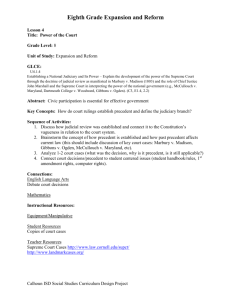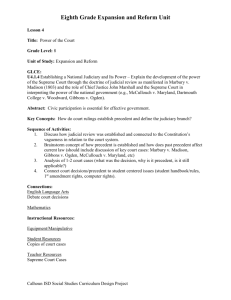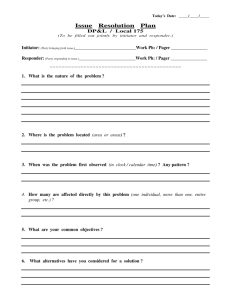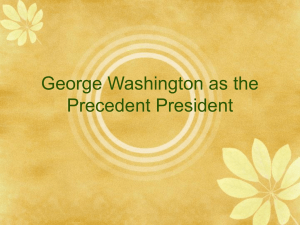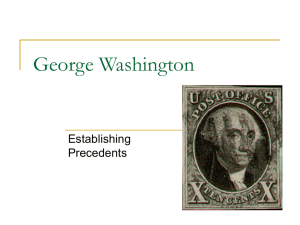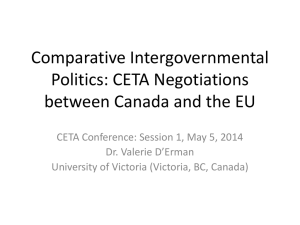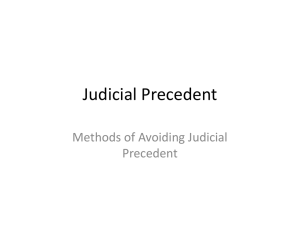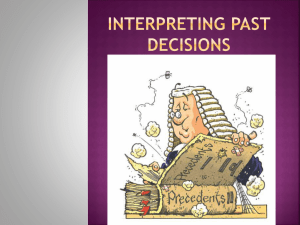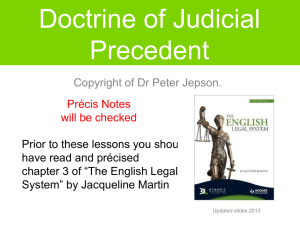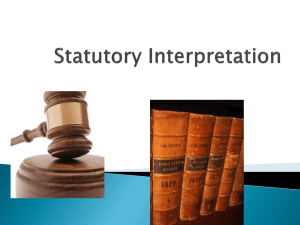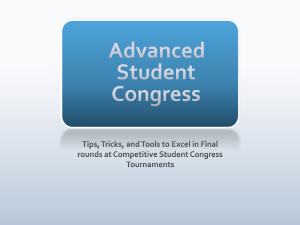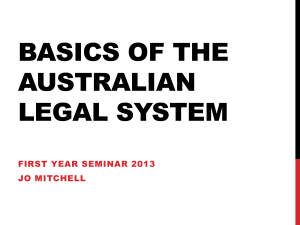Role of Stakeholders in promoting competition and consumer
advertisement
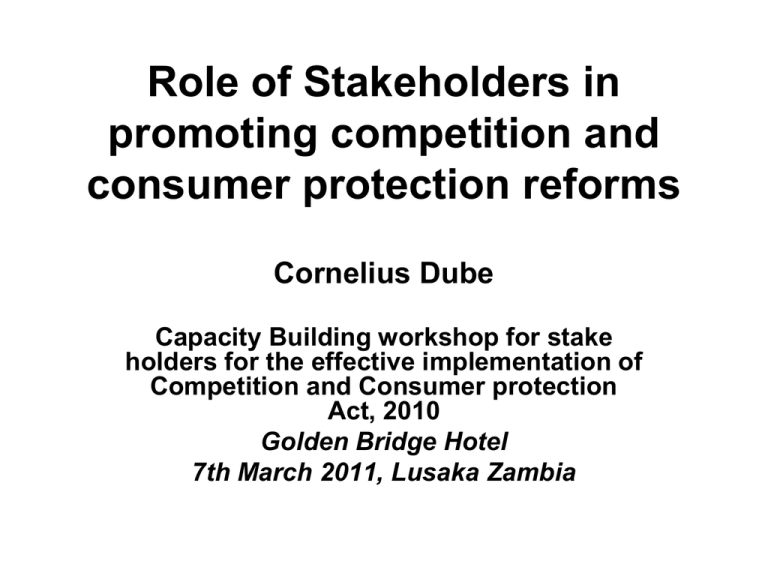
Role of Stakeholders in promoting competition and consumer protection reforms Cornelius Dube Capacity Building workshop for stake holders for the effective implementation of Competition and Consumer protection Act, 2010 Golden Bridge Hotel 7th March 2011, Lusaka Zambia ‘Key stakeholders’ in competition and consumer protection reforms process POLICYMAKERS, COMPETITION AGENCY, CONSUMER PROTECTION AUTHORITY, CIVIL SOCIETY, ACADEMIA, SECTOR REGULATORS, MEDIA, BUSINESS ASSOCIATIONS, LEGAL FRATERNITY, JUDICIARY, ETC. 2 Policymakers • Policies generally made at cabinet level and endorsed by parliament – Policy makers- government officials (ministers) who make policies together with the MPs • Expected Roles – Lay out conducive policy and legal frameworks – Release resources for functioning of institutions – Monitoring and accountability • Conditions precedent – Appreciation of benefits from competition and consumer protection reforms – Capacity to implement policies 3 Competition Agency • The institution, established by the competition law, tasked with enforcement – The decisive factor in establishment of competition culture • Expected roles – – – – Effective enforcement of competition law; communication with consumers/other stakeholders Activities aimed at promoting competition culture and awareness undertake competition advocacy • Conditions precedent – – – – Subject knowledge and skills, human and financial resources functional autonomy Good interface with complementary institutions 4 Consumer Protection Authority • Institution with legal backing for consumer interest • Expected Roles – – – – Effective enforcement of consumer law; Establish linkages with other consumer movements Promotion general awareness about consumer issues Advocacy with relevant Ministries • Conditions Precedent – – – – Subject knowledge and skills, human and financial resources functional autonomy Good interface with complementary institutions 5 Civil Society/Consumer Organisations • Refers to voluntary social organizations and institutions that advocate for rights of consumers • Expected Roles – – – – Watchdogs for competition and consumer authorities Awareness generation on competition and consumer issues Mobilising consumers voice on need for protection Advocacy and pressure on competition and consumer protection reforms • Conditions precedent – – – – understanding on competition and consumer issues; Structures and capacity for interaction with various stakeholders Support from development partners Recognition by the relevant authorities 6 Academia • University and other research institutions • Expected Roles – Policy research on competition and consumer policy issues – Training courses on competition and consumer issues for human resource improvement – Capacity building programmes for officials • Conditions precedent – Acceptance of competition and consumer issues into the curricular – Knowledge of competition and consumer issues by researchers 7 Sector Regulators • Regulatory authority established by other sector specific legislation • Expected Roles – Promote competition in their respective sectors – Make decisions that have a bearing on competition – Protect consumer interests in their sectors • Conditions Precedent – Resources to carry the tasks – Good legal framework – Good interface with competition and consumer authority 8 Business • Regulated entity hence has big role to play • Expected Roles – Competing fairly and avoid consumer violations – Being sources of information for competition and consumer authority – Business associations promoting understanding on competition among members (firms) – Associations not being conduits for anticompetitive behaviour • Conditions precedent – No regulatory capture – Competitive neutrality – Acceptance of competition reforms by (big) businesses 9 Media • All avenues of communication with general public (print, electronic, etc) • Expected Roles – – – – Promote greater public awareness of issues Awareness on institutions and legal framework Hint on possible anticompetitive areas and consumer violations Constructive criticism • Conditions precedent – – – – Availability of trained reporters Capacity building courses for media Willing contributors (articles, reports, etc) Good interaction with institutions (press releases etc) 10 Legal Fraternity • Legal practitioners (for business and competition agency) also carry a heavy burden • Expected Roles – – – – educate clients on compliance mechanisms Help judiciary establish case laws Ensure careful enforcement of laws by guarding against carelessness Help identify loopholes in the administration system • Conditions precedent – proper understanding of the provisions of the law, and its overall goal – Training programmes for the lawyers – Quick justice delivery system 11 Judiciary • The buck stops at the judiciary, hence determines efficiency of system • Expected Roles – Efficient disposal of related trials/cases – Establish case laws • Conditions precedent – knowledge on the subjects – Conducive platform for presiding cases (e.g different from common criminal cases) 12 Conclusions • Stakeholders need to understand and adequately perform their specific roles • Each stakeholder needs training to effectively perform role • Programmes on awareness of competition and consumer issues and their benefits critical for success • Stakeholders need to complement each other rather than step on each other’s toes • Resource constraints major challenge; hence development partners called upon • Advocacy key to buy-in; important to establish a cadre of advocates through training programmes 13 THANK YOU! cd@cuts.org www.cuts-ccier.org 14
